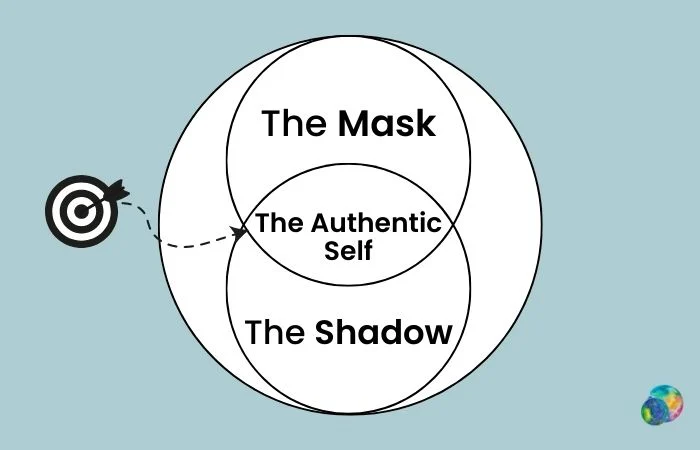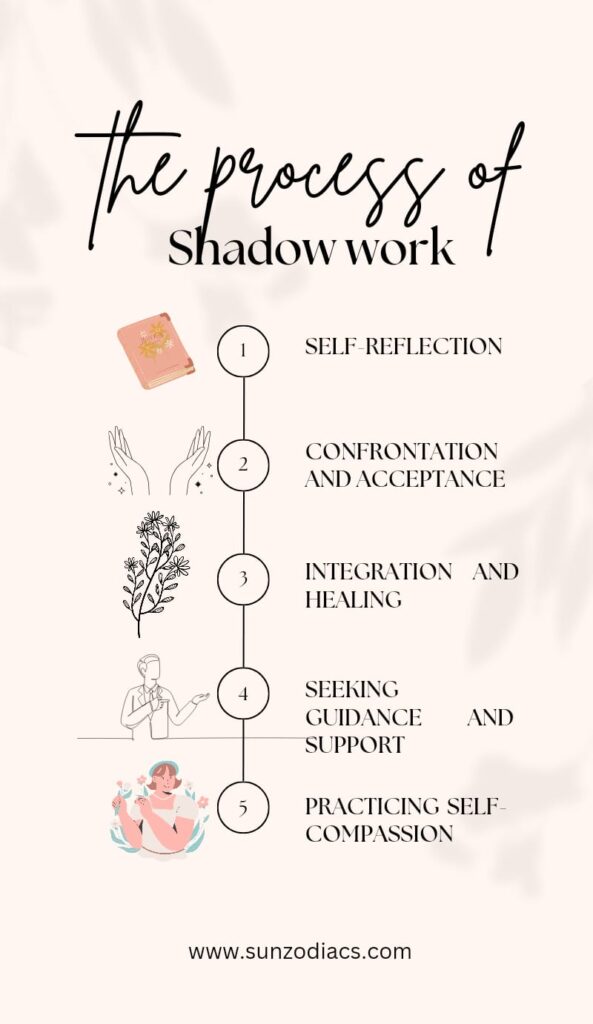In the ever-evolving landscape of self-discovery, shadow work has emerged as a profound method for delving into the depths of one’s psyche. At its core, shadow work is the practice of exploring and embracing the darker, hidden aspects of our personality. It’s a journey that demands courage, introspection, and a willingness to confront the shadows within. In this comprehensive guide, we delve into the intricate realm of shadow work, shedding light on its significance and guiding you through the transformative process.
Understanding Shadow Work

It is a type of personal development that focuses on integrating the shadow self into the conscious mind. The shadow self is the part of ourselves that we repress or disown, often because it contains traits that we deem unacceptable or undesirable. Shadow work can be challenging, but it can also be incredibly rewarding, leading to greater self-awareness, compassion, and wholeness.
The Psychological Underpinnings
Rooted in the groundbreaking theories of Carl Jung, shadow work is grounded in the concept of the unconscious mind. Jung believed that our psyche consists of both the conscious and unconscious aspects, with the latter housing the shadow self. Exploring these depths allows us to integrate our fragmented selves, leading to a harmonious balance between light and dark.
The Process of Shadow Work

Self-Reflection: The First Step Towards Liberation
To commence your shadow work journey, begin with self-reflection. Take a moment to ponder upon your deepest fears, regrets, and hidden desires. Journaling can be a powerful tool, enabling you to articulate your thoughts and emotions. By acknowledging these aspects, you pave the way for profound inner transformation.
Confrontation and Acceptance
The heart of shadow work lies in the courageous act of confronting your shadows. This confrontation demands unwavering honesty and self-compassion. Engage in open dialogue with your inner demons, acknowledging their presence without judgment. In this process, acceptance becomes the key. Embrace your shadows as integral parts of your being, understanding that they do not define your worth.
Integration and Healing
As you navigate the turbulent waters of shadow work, integration emerges as the beacon of hope. Integrating your shadows implies accepting them wholly, allowing them to coexist with your light. This integration leads to profound healing, enabling you to move forward with a newfound sense of wholeness and authenticity.
Seeking Guidance and Support
Embarking on the path of shadow work can be daunting, and seeking guidance is a sign of strength, not weakness. Consider connecting with experienced therapists, counsellors, or spiritual guides who specialize in shadow work. Their expertise can provide invaluable insights and support as you navigate the complexities of your inner world.
Practicing Self-Compassion
Throughout your shadow work journey, remember to be gentle with yourself. Self-compassion acts as a soothing balm, healing the wounds uncovered during your exploration. Treat yourself with the kindness and understanding you would offer a friend of yours. Embracing self-compassion fosters resilience and nurtures your soul throughout this transformative process.
How to do shadow work
There are different ways to do shadow work. Some common approaches include:
- Journaling: Writing about your thoughts, feelings, and dreams can help you to identify and explore your shadow self.
- Meditation: Meditation can help you to become more aware of your unconscious thoughts and emotions.
- Dream analysis: Dreams can provide valuable insights into your shadow self.
- Therapy: A therapist can provide guidance and support as you work through your shadow material.
The Profound Impact of Shadow Work

Enhanced Self-Awareness and Emotional Intelligence
Engaging in shadow work cultivates heightened self-awareness. By understanding the intricacies of your psyche, you gain clarity on your motivations, behaviours, and triggers. This self-awareness lays the foundation for enhanced emotional intelligence, empowering you to navigate complex interpersonal relationships with grace and empathy.
Embracing Empowerment
Shadow work is not merely a process of confronting fears; it’s a journey toward empowerment. As you embrace your shadows, you reclaim lost fragments of yourself, leading to a profound sense of empowerment. You no longer succumb to the shadows’ influence but instead harness their energy to fuel your growth and transformation.
Conclusion
In a world obsessed with portraying only the positive aspects of life, shadow work stands as a beacon of authenticity and self-acceptance. By embarking on this transformative journey, individuals can confront their deepest fears, heal emotional wounds, and foster personal growth. shadow work can be a challenging but rewarding process. It is important to be patient and compassionate with yourself as you work through your shadow material.
If you find that the process is too difficult to do on your own, consider working with a therapist or counsellor. In the realm of shadows, they discover the light within themselves—a light that illuminates their path towards a more genuine, compassionate, and integrated existence. Embracing the shadows, they emerge stronger, wiser, and whole, ready to face life’s challenges with newfound resilience and authenticity.





nice